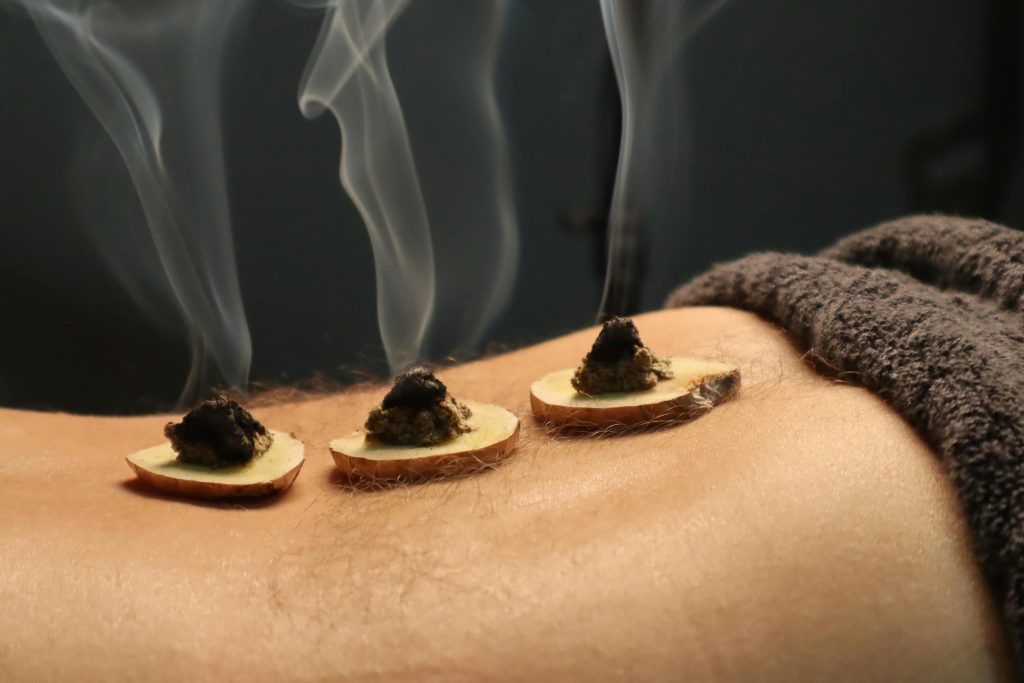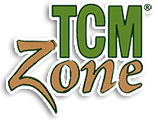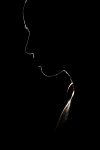Adapting TCM to Modern Lifestyles: Practical Tips for Patients

By Xiyuan “Alex” Qiu, L.Ac.
In the fast-paced rhythm of modern life, Traditional Chinese Medicine (TCM) stands as a beacon of holistic well-being, offering profound insights into the interconnectedness of mind, body, and spirit. For advanced acupuncturists and herbalists, bridging the wisdom of TCM with the demands of contemporary living becomes an artful endeavor. This blog unfolds practical tips for patients, empowering them to seamlessly integrate TCM principles into their daily lives, fostering a harmonious balance that extends beyond clinic visits.
1. Embrace Mindful Nutrition: The Art of Eating for Balance
In the realm of TCM, nutrition is not merely about sustenance but a profound means to harmonize the body’s energies. Patients can adapt TCM principles to modern lifestyles by:
- Balancing Five Flavors: Encourage a variety of tastes in each meal – sweet, sour, bitter, salty, and pungent – to nourish all aspects of the body.
- Seasonal Eating: Emphasize locally available, seasonal foods to align with the natural cycles and support the body’s evolving needs.
- Food Energetics: Explore the thermal nature of foods (cooling or warming) to maintain a dynamic equilibrium within the body.
2. Qi Gong for Modern Warriors: Cultivating Vital Energy
In the hustle and bustle of contemporary life, stress and fatigue often take center stage. Patients can infuse TCM wisdom into their daily routine by:
- Morning Qi Gong Routine: Develop a brief Qi Gong routine in the morning to awaken and invigorate the body’s vital energy.
- Workplace Energy Breaks: Integrate short Qi Gong exercises during breaks at work to counteract the effects of sedentary tasks and rejuvenate the mind.
- Mindful Breathwork: Incorporate mindful breathing exercises to calm the Shen (spirit) and promote mental clarity throughout the day.
 3. Harmonizing Sleep with TCM Principles
3. Harmonizing Sleep with TCM Principles
Quality sleep is a cornerstone of TCM, reflecting the body’s ability to restore and replenish. Patients can optimize their sleep patterns by:
- Creating a Sleep Sanctuary: Establish a calming bedtime routine and optimize the sleep environment with dim lighting and minimal electronic devices.
- Understanding Organ Clock: Align sleep patterns with the TCM organ clock, ensuring that specific organs undergo restoration during their designated time.
- Herbal Allies for Sleep: Explore TCM herbal formulas tailored to promote restful sleep, addressing underlying imbalances such as Liver Qi stagnation or Heart disharmony.
4. Acupressure at Your Fingertips: DIY Techniques for Balance
Empower patients to take control of their well-being between acupuncture sessions by incorporating acupressure:
- Daily Acupressure Routine: Educate patients on key acupressure points relevant to their specific concerns, encouraging daily self-massage or acupressure.
- Stress Release Points: Teach acupressure points effective for stress relief, such as Yin Tang and Pericardium 6, to manage daily pressures.
- Energetic Balancing: Guide patients in using acupressure as a tool for balancing excesses or deficiencies, aligning with TCM principles.
5. TCM-Inspired Movement: Tailored Exercises for Holistic Health
Exercise is an integral part of TCM, promoting the flow of Qi and Blood. Patients can adapt TCM principles to their fitness routine by:
- Tai Chi and Qi Gong: Encourage the practice of Tai Chi or Qi Gong, embodying slow, flowing movements that harmonize body and mind.
- Individualized Exercise Plans: Tailor exercise recommendations based on the patient’s constitutional type and specific health concerns, aligning with TCM diagnostics.
- Seasonal Adjustments: Suggest modifications to exercise routines based on seasonal changes, aligning with TCM’s emphasis on adapting to nature’s cycles.
 6. Emotional Alchemy: Transforming Emotions with TCM Wisdom
6. Emotional Alchemy: Transforming Emotions with TCM Wisdom
TCM recognizes the profound impact of emotions on health, offering patients tools to navigate their emotional landscape:
- Five Element Awareness: Foster awareness of the Five Elements and their associated emotions, empowering patients to recognize and address imbalances.
- Mindful Meditation: Introduce mindfulness meditation techniques to cultivate emotional resilience and foster a sense of inner calm.
- Herbal Support: Explore adaptogenic herbs and formulas to support emotional well-being, addressing imbalances related to specific emotions.
7. TCM-Inspired Self-Care Rituals: Nurturing the Body and Soul
Encourage patients to embrace self-care rituals that align with TCM principles, promoting a sense of nourishment and balance:
- Warm Water Therapies: Emphasize the benefits of warm water for drinking, bathing, or foot soaks, supporting the body’s internal harmony.
- Aromatherapy: Integrate the use of essential oils that resonate with TCM principles, such as lavender for calming or peppermint for invigorating the senses.
- Personalized Herbal Teas: Recommend herbal teas tailored to individual constitutions or specific health goals, incorporating the wisdom of TCM herbalism.
8. Seasonal Detox: Aligning with Nature’s Renewal
Incorporate TCM-inspired seasonal detox practices to support the body’s natural cycles of renewal and rejuvenation:
- Spring Cleansing: Advocate for gentle detox practices in spring, aligning with TCM’s emphasis on Liver and Gallbladder health during this season.
- Autumn Nourishment: Encourage nourishing practices in autumn to support the Lung and Large Intestine, promoting respiratory and digestive health.
- Herbal Support: Introduce herbal formulas designed for seasonal support, addressing specific organ systems associated with each season.
9. TCM Mind-Body Connection: Strengthening the Shen
Highlight the significance of the mind-body connection in TCM and guide patients in fostering emotional and mental well-being:
- Mindful Awareness: Promote mindful awareness of thoughts and emotions, encouraging patients to cultivate a positive mental environment.
- Shen-Nourishing Foods: Integrate foods and herbs known to nourish the Shen, such as Longan fruit and Spirit Calming Tea.
- Balancing Lifestyle: Emphasize the importance of work-life balance and stress management to prevent the depletion of Shen energy.
10. Holistic Pulse Checks: Regular Self-Assessment
Empower patients with the knowledge to perform basic self-assessment of their pulse, offering insights into their current state of balance:
- Pulse Quality Awareness: Educate patients on the basic qualities of the pulse, allowing them to detect changes or imbalances.
- Self-Reflection: Encourage regular self-reflection on lifestyle choices, stressors, and emotional well-being in relation to pulse changes.
- Consultation with Practitioner: Remind patients of the value of regular consultations with their acupuncturist and herbalist for personalized guidance based on pulse assessments.
As advanced acupuncturists and herbalists guide their patients on the journey of well-being, the fusion of TCM tradition with modern lifestyles becomes an artful dance. By imparting practical tips grounded in the wisdom of TCM, practitioners empower their patients to weave the principles of balance, harmony, and vitality into the fabric of their everyday lives. This seamless integration fosters a holistic approach to health, allowing patients to thrive not only within the clinic’s walls but in the vibrant tapestry of their modern existence.
References:
- Maciocia, G. (2015). The Foundations of Chinese Medicine: A Comprehensive Text. Elsevier Health Sciences.
- Pitchford, P. (2002). Healing with Whole Foods: Asian Traditions and Modern Nutrition. North Atlantic Books.
- Flaws, B. (1997). The Tao of Healthy Eating: Dietary Wisdom According to Traditional Chinese Medicine. Blue Poppy Press.
- Haas, E. M., & Levin, B. (2006). Staying Healthy with the Seasons. Celestial Arts.
- Tierra, M. (1998). The Way of Chinese Herbs. Pocket Books.


 3. Harmonizing Sleep with TCM Principles
3. Harmonizing Sleep with TCM Principles 6. Emotional Alchemy: Transforming Emotions with TCM Wisdom
6. Emotional Alchemy: Transforming Emotions with TCM Wisdom